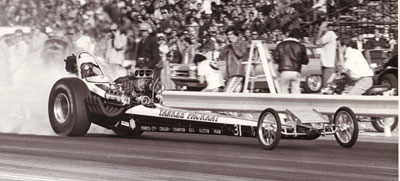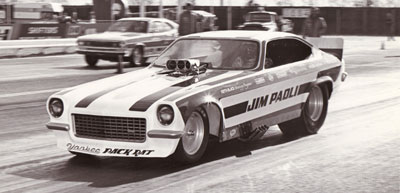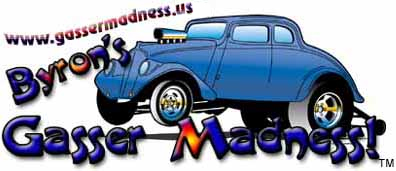|
Correction, received 21 March
2009:
In your story on the death of Jim
Paoli, you indicate his parents moved to Winter Park, Florida, when, in fact,
they moved to Winter Haven, Florida and lived on Lake Summit until the early
90's when Bess returned to Springfield. I just wanted to let you know so you
provide correct information. Thanks!
Danielle Paoli-Heath |
|
Courtesy of Phil Burgess. First published on
NHRA.com Former Division 3 Top Fuel champ Paoli
dies: Jim Paoli, the 1970 and 1971 NHRA Division 3 Top Fuel champion
and later Funny Car racer, died April 3.
Paoli, who was based out of Springfield, Ill., was runner-up to Dave
Chenevert in the Top Fuel final of the inaugural Gatornationals in 1970 in
his lone national event final-round appearance.
Paoli was the son of Indy 500 racers Guerino and Bessie Paoli, who won the
1952 U.S. Nationals Championships with driver Art Cross. Paoli began his
drag racing career in 1965 on Springfield-area eighth-mile tracks with a
new 396-powered Chevy Super Sport. He later graduated to an injected
roadster and to Jr. Fuel in 1967 with partner Bob Baugh.
Paoli’s parents had moved to Winter Park, Fla., where his mother met Don
Garlits and quickly commissioned a Top Fuel car for her son, who flew to
Florida to learn at the knee of Garlits and Connie Swingle.
 |
 |
Paoli made his Top Fuel debut at the 1969 Nationals in Indy, where he
reached the semifinals before a devastating clutch explosion ended his day
against Kelly Brown.
In addition to his divisional titles in 1970 and 1971, Paoli won NHRA’s
Eastern Conference championship in 1970 and the UDRA championship in 1971.
Paoli struggled with breakage after switching to a rear-engine car in
1972, so much so that he jumped back behind the engine. After a short
stint with the Ramchargers team, he fielded a Vega-bodied Funny Car,
known, like his Top Fuel rides, as Yankee Packrat, with which he won an
IHRA national event in 1972.
After his father became ill, Paoli retired from driving after the 1973
season, ending a short but respectable career.
"My attitude was that if he couldn’t race, then I wasn’t into it, either,”
he told National DRAGSTER in a 1997 interview. “It was tough to
quit because I really loved racing, but family considerations ruled.”
After his racing career ended, he owned and operated Springfield Welding
and Auto Body, which his father had opened in 1941. |


